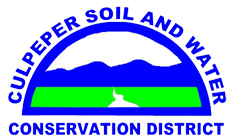2024 Envirothon Current Issue: Renewable Energy for a Sustainable Future
In our modern world, energy touches almost every aspect of our lives. It lights our homes, transports our food, cleans our water, fuels our cars, powers life-saving medical equipment and so much more. The production and use of energy are deeply entwined with the economy, social and political issues and the environment. The environmental, economic and social outcomes of the choices being made about energy now will shape the future of our planet. Governmental policies, industry and public opinion are shifting to embrace a sustainable future that includes renewable energy.
Today, power generation from renewable energy sources accounts for approximately one third of the total global output (1). Signatories to the United Nations Convention on Climate Change agreed to work towards the goal of nearly 80% of the global power demand to be met by renewable sources by 2050 (1). New York State is working to build a vibrant renewable energy industry covering all facets of the process from manufacturing to installation and including technologies for solar, wind, biomass and hydroelectric energy. New York State also has some of the most progressive energy and climate goals in the United States, including: the adoption of the Clean Energy Standard, the passage of a mandate for 70% of electricity in the state to be from renewable sources by 2030, the goal of achieving a 40% reduction in greenhouse gas emissions by 2030 (using 1990 levels as a baseline) and saving 185 trillion British Thermal units (BTUs) in end-use energy by 2030 through greater efficiency (New York State Legislation: Climate Leadership and Community Protection Act).
Decisions about sustainable energy are not just made by politicians and corporation. Individuals can choose what energy practices to support and can advocate for the transition to renewables. New energy innovations are constantly transforming this emerging field with technological developments in energy sources, production methods and flexible delivery.
Students will learn about the different sources of renewable energy; the challenges facing the transition from traditional fossil fuels to renewables; the environmental, economic and social impacts of energy consumption and how individuals can affect change in their communities.
Resources:
Stakeholder Perspectives on Utility Scale Solar Facility Development and Key Considerations for Decision Makers (Rappahannock River Basin Commission)
Chesapeake experts focus on solar power’s stormwater footprint (Bay Journal)
Clarke County Seeks to ban solar power plants (The Northern Virginia Daily)
